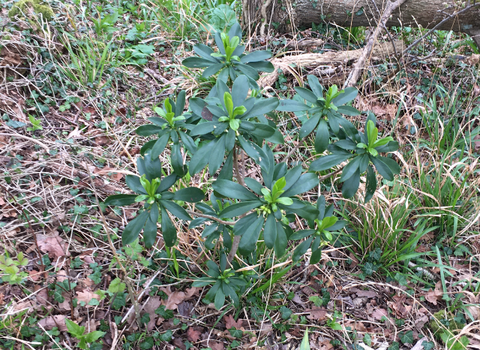
Charles Neilson
Spurge laurel
Despite its name, Spurge laurel is not a laurel - it just looks like one! It has glossy, dark green leaves and black, poisonous berries, and can be found in woodlands in southern England, in particular.

Charles Neilson